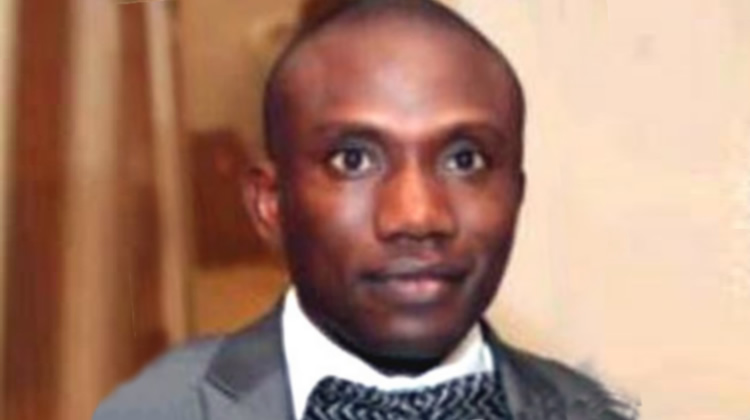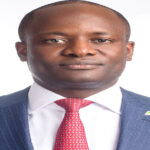
“…Anyone who has dared express any view critical of or opposed to that of Mr Peter Obi, presidential candidate of the Labour Party in the 2023 elections, is immediately set upon by the unwieldy column of wild dogs who have labelled themselves ‘Obidients’ and constitute a lawless mob baying for blood on social media!”
This is an excerpt from a recent article by Mr Dele Alake, Special Adviser to President-elect Asiwaju Bola Tinubu. Alake, a veteran journalist, wrote in response to an apparently offensive and partisan intervention from Dr. Chidi Amuta. Amuta is another veteran, who describes himself as an “intellectual journalist and public affairs consultant.”
In “Peter Obi and the looming tyranny,” he creates a picture of what should happen after the declaration of the winner of an election. He concludes things are much contrary to these expectations.
A non-partisan reader would find it hard to fault his position on this front. Rather than the excitement that should permeate the environment 40 days before the swearing-in of a new administration, we have the tension usually associated with elections. This was the premise of a part of Amuta’s argument in the article. But he later comes across as a prejudiced commentator in some of his portrayals of Mr Peter Obi, presidential candidate of the Labour Party in the last elections, and the president-elect. This was where he incurred Alake’s wrath.
In his riposte, “Chidi Amuta, Peter Obi, and the ‘Obidients’ thriving tyranny”, the former editor of the defunct National Concord took no prisoners. He came after the other veteran for displaying bias and reproduced some of the unprintable names that some Nigerians describe supporters of Obi with.
Ordinarily, these two men and Nigerians have every right to self-expression and the support of groups of their choice. Moreso for Amuta, he is a private citizen totally unencumbered by moral obligations. He can be accused of exploiting a public trust like a national newspaper to express plainly partisan views, but the man has the right to hold an opinion.
We cannot say the same of Alake, who speaks for the man who will become Nigeria’s president in just a little over a month. Alake has every right to express opinion as a Nigerian, but the office he currently holds requires a measure of discretion. At least one, if not both, of two things is expected of people in the former editor’s office at the juncture in which Nigeria currently finds itself. The first of that is the promotion of what Nigerians should expect from the incoming administration.
No one, including the most ardent supporters of the ruling All Progressives Congress can say that Nigerians have had it well with their leaders in the past two decades. Between the declaration of the winner of an election and his assumption of office, there are opportunities to build hope and win some legitimacy for the government, regardless of what the opposition politicians say. The opposition themselves, not being unreasonably disdainful of the democratic process, no matter what inadequacies it may have. History in the past two decades has shown that not even the United States of America can boast of a perfect democracy. Operators of the system and citizens of the country have just learnt to respect the system, no matter who they support. National interest should trump all other considerations in the circumstance. Moments like this are not moments of war when the winners, losers and supporters on either side engage in verbal combat.
This period demands action and reflection when the winners should assure the people of the prospects that the next four years hold. It is the period when those who feel they have lost unjustly must submit themselves to the supremacy of the judiciary and let the country have peace, meanwhile.
Accompanying assurances by the winners should be actions reflective of what is coming. In 1999, when the president-elect became governor of Lagos State, for instance, he had a formidable transition committee, which worked on a blueprint of what the state should look like in a democracy. Nigeria deserves much more than that with the despair and uncertainty around the country.
The second thing the winner of a hotly contested election like the recent one should do is make friends for the incoming administration among as many Nigerians as possible. Nothing gives legitimacy to a government as much as the acceptance of the people it hopes to govern. And it doesn’t matter whether they voted. Battling the opposition and tackling their every word like electioneering was still on is a counter-productive venture that the president-elect and his team do not need. You cannot speak for the country’s incoming leader, then disparage and call Nigerians names.
Every government needs the support of most of the people to achieve its objectives. This is regardless of how antagonistic or angry they appear to be with that government. This is especially true in Nigeria, where everyone knows that public disenchantment is justified. Most of the young people who constitute “Obidient” group accused of mob tyranny are only responding to frustrations of unmet dreams a country with enormous resources has foisted on them. Engaging them in vocal pugilism indicates our own disconnect from the reality of their existence and, even worse, a testament that they are only a product of our hitherto restrained intolerance. As a mango tree cannot produce oranges, those young people that we vilify are products of the failed society that we have created; they are emblems of our collective let-down as leaders, parents, religious leaders, teachers and what have you. Outbursts and name calling from the older and self- confessed more temperate generations impugns on our own emotional intelligence and ability to manage things better.
For a foundation of inclusiveness and a pan Nigerian agenda, the Tinubu camp should assuage the disgruntled groups who are at daggers drawn. That is the hallmark of progressive leadership.
If one assumes that both pro-and anti Tinubu voters want a better country, winners of the elections would lay a solid foundation for the new government by building hope in place of despair and trust in place of hostilities that heralded the last elections.
A divided Nigeria driven by the politics of identity of faith and tongues is unhelpful to a Bola Tinubu who spent enormous resources, and along others, took unimaginable risks to enthrone civil democracy in the country.
Those on the side of the president-elect must appreciate that the dynamics of public communication is changing. With the violence and unrestrained incursion of social media, the actualisation of a stable Tinubu administration will depend on continuous rapprochement rather than the fire for fire attitude amongst the parties with the frightening ethnic dimensions attending it.
We must all learn to respect the ethos of democracy. It may not be the best system of government the world offers, but it is our choice.
Elections are now over; the winners must own their victory, while those who feel cheated should prove their point in court. While at that, they must refrain from blackmail or any attempt to pre-empt or derogate the sanctity of the judiciary.
There must be a country to govern. The only prospect for that is that we all respect the democratic rights of every citizen and allow our institutions to perform their duties without let or hindrance. That is our only hope of becoming a decent society.
– [email protected]





